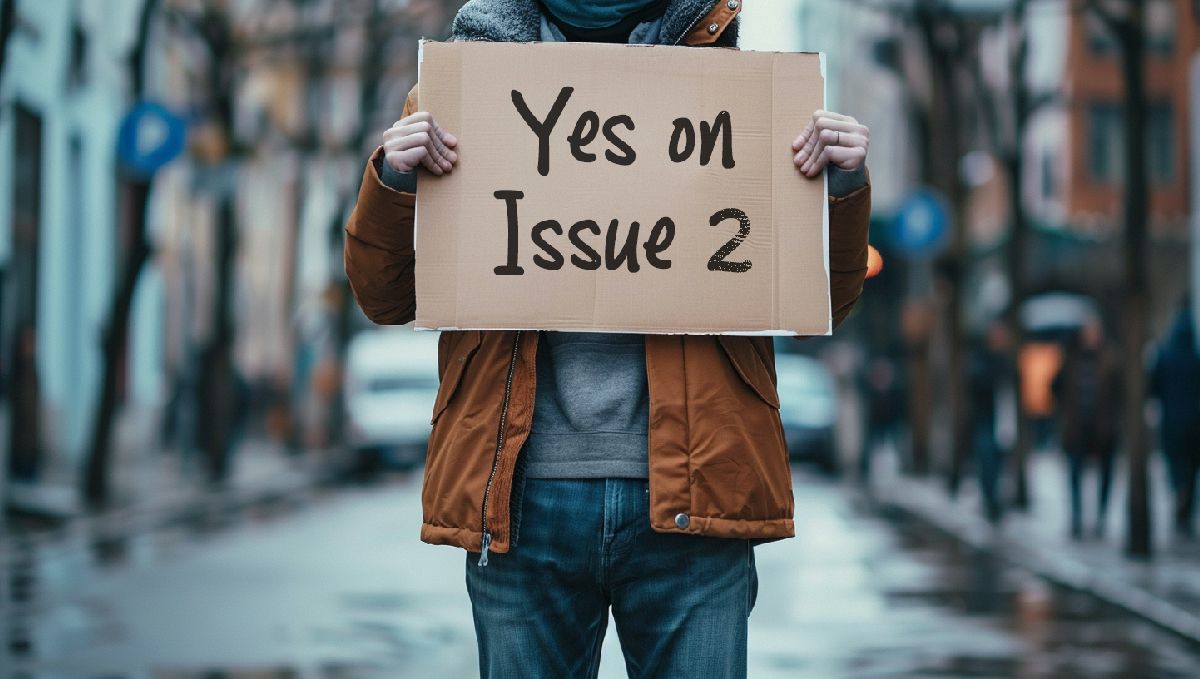Weed in Ohio: Cannabis Legal Status Guide

- 1. Ohio voted to legalize marijuana in 2023
- 1. a. What is legal already
- 1. b. Legal sales still pending
- 1. c. Where can you buy recreational marijuana in ohio
- 1. d. Can you bring marijuana from a neighboring state?
- 1. e. Is it legal to be high in public?
- 1. f. Is delta 10 legal in ohio?
- 1. g. What were the reasons for adult-use legalization?
- 1. h. Some background facts
- 2. Medical marijuana in ohio
- 2. a. Medical marijuana sales began in 2019
- 2. b. Can patients grow their own supply of medical marijuana?
- 2. c. Are smokable forms of medical marijuana available in oh dispensaries?
- 2. d. Are cbd gummies legal in ohio?
- 3. Driving under the influence of marijuana in ohio
- 4. Final thoughts
The cannabis policy in Ohio hasn’t been draconian to begin with, and recently, the legislators have passed a law that made the substance legal for recreational use. Read on to learn more.
Ohio Voted to Legalize Marijuana in 2023
In November 2023, Issue 2, a ballot measure seeking to legalize cannabis in the state, got the necessary majority of votes and passed into law in December. This made Ohio the 24th state to legalize non-medical possession and use of cannabis for adults 21 and older.
What is Legal Already
Adult Ohioans now have the right to possess up to 2.5 ounces (100 g) of cannabis flowers or 15 grams of concentrates, such as hash. They can also grow up to 6 plants for their own consumption. If two or more adults live in the same household, it can have up to 12 plants in total.
Growers can even give their plants to others if this is kept a private affair, isn’t advertised publicly, and there’s no money exchange.
Legal Sales Still Pending
While the rules regarding the individual consumption, possession, and cultivation came into effect almost immediately, the creation of a regulated cannabis market will take some time. According to the ballot measure, it was up to elected officials to design a system of cultivation and distribution.
The first applications for dispensary licenses were supposed to be provided by June 2024, and the first provisional licenses are expected to be granted by September. The established medical marijuana dispensaries are likely to get a headstart and become the first to sell marijuana to recreational users.
Finer points of the future adult-use program, such as taxes, are still debated in the state’s Congress and Senate.
Where Can You Buy Recreational Marijuana in Ohio
As of the time of writing, the only type of legal sales available to Ohioans is in medical dispensaries, so one needs to be registered as a patient and have a valid card to legally buy cannabis in Ohio. The state may be ready to sell recreational cannabis by the end of 2024.

Can You Bring Marijuana from a Neighboring State?
One can easily buy marijuana in a dispensary in Michigan, for example, but it’s technically illegal to bring it across the state line to Ohio even though the substance is legal in both states. You should wait until Ohio opens its own legal recreational shops.
Is It Legal to Be High in Public?
It’s illegal to smoke marijuana in enclosed public places and places of employment in Ohio the same as it’s illegal to smoke tobacco. Smoking is only allowed in smoke shops, outdoor patios and other smoking areas, and hotel rooms if the hotel has specifically allowed that. The rules for outdoor smoking remain unclear.
Is Delta 10 legal in Ohio?
Yes, since the legalization of adult use, all cannabinoids, including delta-10-THC, are legal in Ohio. Moreover, Delta 10 is routinely produced from hemp, the non-psychoactive variety of cannabis, which makes it legal across all 50 states. Unlike delta-9-THC, or simply THC, you can purchase Delta 10 products in hemp shops in Ohio. The same goes for Delta 11 or Delta 8.
What Were the Reasons for Adult-Use Legalization?
As anywhere else, it was partly the issue of social justice, partly a health concern, but mostly the need to divert money from the hands of criminals and into the state coffers. It’s supposed that the legal sales system, once it starts operating, will provide a regulated and therefore safer product, undermine the black market, stop the illegal transport of cannabis purchased in dispensaries in the neighboring states, and provide funds for communities that allow cannabis businesses in their jurisdictions. Moreover, the new industry will hopefully create new jobs and stimulate small businesses and those owned and run by minorities.

Some Background Facts
Cannabis policy in Ohio was among the more lenient in the United States. The possession of up to 2.5 ounces was decriminalized as far back as 1975, and this misdemeanor was only punished by a $150 fine. Moreover, many municipalities in Ohio, such as Toledo, Dayton, and Cincinnati, went further and depenalized small-time marijuana offenses, meaning the offenders didn’t even have to pay a fine.
Despite all this, people were continuing to get into trouble for individual possession or petty dealing, with Blacks 4.1 times more likely to be arrested than their Caucasian counterparts, according to a 2013 ACLU report.
In 2015, only 3 years after the first successful legalization initiatives in Colorado and Oregon, the residents of Ohio were given the opportunity to vote for a marijuana legalization measure, but it was justly criticized for not being inclusive enough and likely aiming to create a monopoly. The initiative wasn’t even supported by such pro-cannabis organizations as MPP and DPA and failed in the ballot.
Medical Marijuana in Ohio
Medical marijuana was legalized in the state through a legislative initiative and signed into law in June 2016. Effective immediately, the registered patients got the right to purchase their medicine in the neighboring states and bring it back home across the border. The law stated the following 21 qualifying conditions:
- AIDS/HIV
- Alzheimer's disease
- Amyotrophic lateral sclerosis (ALS)
- Cancer
- Chronic traumatic encephalopathy (CTE)
- Crohn's disease
- Epilepsy (or other seizure disorder)
- Fibromyalgia
- Glaucoma
- Hepatitis C
- Inflammatory bowel disease
- Multiple sclerosis
- Pain that is either chronic and severe or intractable
- Parkinson's disease
- Post-traumatic stress disorder
- Sickle cell anemia
- Spinal cord disease or injury
- Tourette's syndrome
- Traumatic brain injury
- Ulcerative colitis*
| *Please note that this isn't medical advice to self-administer cannabis. However, if you're a resident of Ohio and have one of the conditions on the list, you may speak with your doctor about trying cannabis treatment for the disease or its symptoms. It's up to the medical professional to decide if the use of medical marijuana in your case is warranted. |
The state medical board has the right to add any other condition to the list as they see fit.
Medical Marijuana Sales Began in 2019
By the end of 2018, the regulator managed to create a fully functional system for medical marijuana distribution – with growing and processing facilities, testing labs, and dispensaries. The first legal sale of medical marijuana was made on January 16, 2019, and at the time of writing, there were at least 58 medical marijuana dispensaries operating across the state. The number of registered patients exceeded 410,000 by December 2023.
Can Patients Grow Their Own Supply of Medical Marijuana?
Under the medical marijuana bill of 2016, home cultivation of cannabis remained prohibited. After the adoption of the recreational initiative in 2023, adult medical patients or caregivers have a right to grow up to six plants (or 12 plants per a household of at least two adults) just like any other adult residents.
Are Smokable Forms of Medical Marijuana Available in OH Dispensaries?
No, medical marijuana products that are supposed to be inhaled as smoke aren’t allowed. To qualify as medicine, cannabis must be in the form of edibles, oils, vaporizer cartridges, patches, or tinctures.
Are CBD Gummies Legal in Ohio?
Yes, CBD gummies and other CBD products are legal and widely available in Ohio. You can buy them online or hemp shops/CBD shops. You don’t need a medical marijuana card for that as CBD products are over the counter. However, you can also purchase them in marijuana dispensaries, where their quality is more strictly regulated. Dispensaries also sell FDA-approved CBD medicines, such as Epidiolex.
Driving Under the Influence of Marijuana in Ohio
If the police pull you over and suspect you’re impaired by marijuana, they may subject you to a sobriety test and require you to pass a urine/blood test.
If marijuana (THC) or its metabolites in your system exceed the legal threshold, you face penalties, which depend whether it’s your first or repeated offense (see the table below). Please note that you can’t legally refuse to pass the test without your lawyer present, unless they are immediately available and can come to the police station within 15 minutes. Similarly, the refusal to undergo the test will result in harsher penalties, so don’t count on it as a valid defense.
| Substance | Urine Threshold | Blood Threshold |
|---|---|---|
| Cannabis | 10 ng/ml | 2 ng/ml |
| Cannabis metabolite | 35 ng/ml | 50 ng/ml |
| Cannabis metabolite + alcohol/illicit drug | 15 ng/ml | 5 ng/ml |
In the table below, we have compiled some (but not all) consequences that a driver faces when caught operating a vehicle under the influence of marijuana. Other penalties may include obligatory drug education programs and the impounding of your vehicle.
| Offense | Jail Time | Fine | Driver License Suspension |
|---|---|---|---|
| 1st | 3 days – 6 months | $375-1,075 | 6 months – 3 years |
| 2nd | 10 days – 6 months | $525-1,625 | 1-5 years |
| 3d | 30 days – 1 year | $850-2,750 | 2-10 years |
| 4th-5th | 60 days – 5 years | $1,350-10,500 | 3 years to permanent |
| 6th + | 120 days – 5 years | $1,350-10,500 | Permanent |
Final Thoughts
Ohio is moving fast to becoming yet another state where marijuana has turned into a no-big-deal issue. The medical marijuana system is fully functional and robust and serves a great number of patients, and the first recreational sales are expected within a year or even sooner. It’s a great victory for cannabis enthusiasts living in Ohio and hopefully a way to restore social justice, create new jobs, and transfer significant amounts of money from the hands of the criminals and back to the public.







Comments